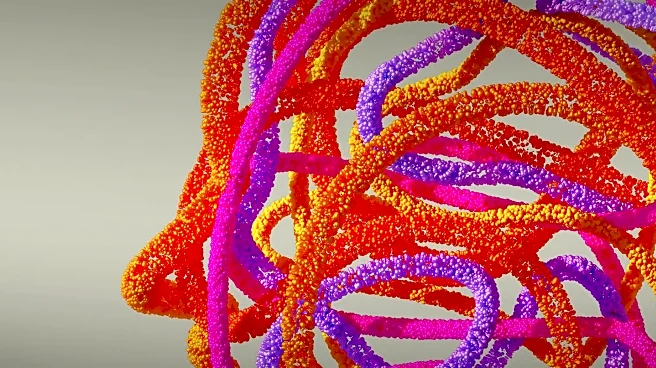What is the story about?
What's Happening?
UniQure has announced promising results from a three-year Phase I/II trial of its gene therapy, AMT-130, for Huntington's disease. The therapy demonstrated a 75% slowing of disease progression, as measured by the composite Unified Huntington's Disease Rating Scale (cUHDRS), compared to an external control group. The trial involved 12 patients receiving a high dose and 12 receiving a low dose of the therapy. Neurofilament light (NfL) levels, a marker of neurodegeneration, were significantly reduced, indicating a slowing of disease progression. The therapy was well-tolerated with a manageable safety profile. UniQure plans to submit a biologics license application for AMT-130 in early 2026, with a potential U.S. launch later that year.
Why It's Important?
The results from UniQure's trial represent a significant advancement in the treatment of Huntington's disease, a rare neurodegenerative condition with limited therapeutic options. The slowing of disease progression by 75% could offer patients improved quality of life and extended functional capacity. This development is particularly important as it may pave the way for the first genetic treatment for Huntington's disease, potentially transforming the treatment landscape. The success of AMT-130 could also encourage further research and development in gene therapies for other neurodegenerative diseases.
What's Next?
UniQure plans to submit a biologics license application to the FDA in the first quarter of 2026, aiming for a U.S. launch later that year, pending approval. The company has reached alignment with the FDA on key components of the statistical analysis plan and chemistry, manufacturing, and controls information to support the application. The positive trial results may bolster UniQure's case with the FDA, potentially leading to accelerated approval. The biotech industry and patient advocacy groups will likely monitor the progress closely, as successful approval could set a precedent for future gene therapies.
Beyond the Headlines
The success of AMT-130 highlights the potential of gene therapy in treating neurodegenerative diseases, which have historically been challenging to manage. Ethical considerations regarding access and affordability of such treatments may arise, given the complexity and cost of gene therapy procedures. Additionally, the trial's success may stimulate interest in exploring gene therapy for other conditions, potentially leading to broader applications and innovations in the field of genetic medicine.















